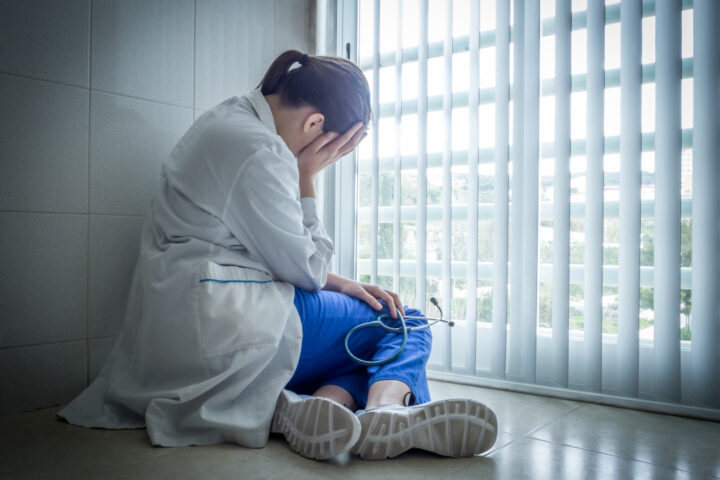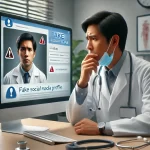“What for? Can we achieve what we ought to achieve in healthcare without social media? We did that in the past, there’s no reason we can’t do that today!”
After tooth combing available researches online, the above hypothesis seem logical. There’s some evidence showing social media adding value to healthcare, but these are mostly qualitative studies. Qualitative studies do not undergo rigid testing of hypothesis characteristic of a good scientific research.
On the flip side, the absence of disputing evidence does not necessarily mean the hypothesis is valid. It is just that we don’t have a metric yet to demonstrate the validity of that hypothesis. Such is the case for social media in healthcare. To import metrics from other fields may also be too simplistic given our superficial understanding of social media behaviour of health stakeholders in relation to healthcare.
Fortunately social media is considered a disruption in many fields, including healthcare. Desirable disruptions effectively short changes accepted norms and processes usually in non conventional ways but achieve same or even better goals with uncanny efficiency. The true value of some disruption maybe demonstrable a later time when technology catches on.
So let me state my alternative hypothesis. Social media might be a way to improve healthcare. The millions of social media users today couldn’t be just a technological spike. The use of social media in healthcare is self evident.
Healthcare stakeholders engage each other on social media. Patients seek health information and find support groups on social media. Healthcare professionals have virtual communities to share knowledge and network with peers. Healthcare professionals seek social media in the hope of increasing scholarly activities such as research or to recruit population for larger studies. Healthcare organizations use social media for rapid information dissemination as well as engaging other healthcare stakeholders.
The bottomline for engaging healthcare stakeholders are for me threefold- improve patient outcomes; achieve clinical excellence for healthcare professionals and humane, sustainable, fair provisions of quality healthcare for institutions. If somehow we have a way, a metric for demonstrating social media adding value to these three bottomline perhaps we have a way of sustaining or disputing my hypothesis.
Let me focus on physicians clinical excellence for now and explore ways of showing impact or value of social media.
A qualitative study by Kotwal et al showed the following determinants of clinical excellence in a hospital medicine: communicating effectively, appreciating partnerships and collaboration, having superior clinical judgment, being organized and efficient, connecting with patients, committing to continued growth and development, and being professional and humanistic “.
Thus for social media to have an “impact” on physician clinical excellence, it has to demonstrate a significant significant improvement over time in any (or all) of the determinants from the baseline measure.
There have been studies on social media as a communication, information dissemination tool in medicine. In the US for examples, Mishori et al looked at the adoption of twitter as an information dissemination platform of 3 big medical association networks. These 3 communities are growing but there’s limited interaction within and across communities. Information dissemination is below its perceived potential. While the primary objective of the original goal seem to have been met, the study is critical on whether information dissemination alone constitute health “engagement” . Measuring how much engagement is attributed to social media in healthcare via this platform is another area ripe for research.
- T1. What is healthcare engagement and how would social media add value to it?
There is evidence showing healthcare professionals create virtual communities and share knowledge on social media. These same virtual communities exhibit what Rolls et al termed as clinicians’ tribal behaviours that may in fact limit the sharing of knowledge across communities. The impact of these virtual communities and the extent of collaboration and sharing of knowledge via social media should be another good area for research in healthcare social media.
- T2. How would social media improve offline collaboration among healthcare professionals? How should we measure this?
How does physician trust peers on social media? Panahi et al found that the “majority of participants established trust on social media mainly through previous personal interaction, authenticity and relevancy of voice, professional standing, consistency of communication, peer recommendation, and non-anonymous and moderated sites.” Healthcare professional credentialing over social media
- T3. Is social media a valid platform for credentialing healthcare professionals? How do you check peer’s credentials over social media?
Standardized metrics for measuring the impact of social media to these determinants has yet to be developed. But the bottomline of all these- social media adding value to healthcare vis a vis clinical excellence, is that it adds up value in improving patient outcomes. Thats another area ripe for research.
Join us this Metric Matrix Saturday March 11, 2017 9PM Manila time as #HealthXPh discusses how should we measure the impact of social media on clinical excellence among healthcare professionals?
- T1. What is healthcare engagement and how would social media add value to it?
- T2. How would social media improve offline collaboration among healthcare professionals? How should we measure this?
- T3. Is social media a valid platform for credentialing healthcare professionals? How do you check peer’s credentials over social media?
REFERENCES:
- Househ M. The use of social media in healthcare: organizational, clinical, and patient perspectives. Stud Health Technol Inform. 2013;183:244–248
- Kotwal S1, Peña I, Howell E, Wright S.J Defining Clinical Excellence in Hospital Medicine: A Qualitative Study.Contin Educ Health Prof. 2017 Winter;37(1):3-8. doi: 10.1097/CEH.0000000000000145.
- Rolls K, Hansen M, Jackson D, Elliott D. How Health Care Professionals Use Social Media to Create Virtual Communities: An Integrative Review. Eysenbach G, ed. Journal of Medical Internet Research. 2016;18(6):e166. doi:10.2196/jmir.5312.
- Panahi S, Watson J, Partridge H Fostering interpersonal trust on social media: physicians’ perspectives and experiences Postgraduate Medical Journal 2016;92:70-73.
- Mishori R, Singh LO, Levy B, Newport C. Mapping Physician Twitter Networks: Describing How They Work as a First Step in Understanding Connectivity, Information Flow, and Message Diffusion. Eysenbach G, ed. Journal of Medical Internet Research. 2014;16(4):e107. doi:10.2196/jmir.3006.
- Griffiths F, Dobermann T, Cave JAK, et al. The Impact of Online Social Networks on Health and Health Systems: A Scoping Review and Case Studies. Policy & Internet. 2015;7(4):473-496. doi:10.1002/poi3.97.
- Houry D, Swahn MH, Hankin A. Social Media, Public Scholarship, and Injury Prevention. Western Journal of Emergency Medicine. 2014;15(5):565-566. doi:10.5811/westjem.2014.5.22754.
- Thackeray R, Neiger BL, Smith AK, Van Wagenen SB. Adoption and use of social media among public health departments. BMC Public Health. 2012;12:242. doi:10.1186/1471-2458-12-242.








